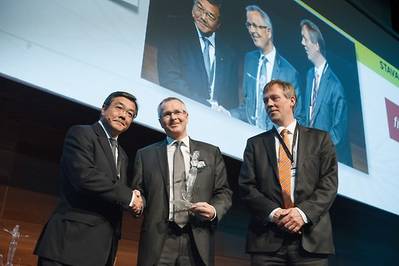IMO Sec-Gen Reflects on Nor-Shipping 2013 Insights
Mr. Koji Sekimizu says in his blog that it was fitting that Nor-Shipping's theme – 'Next generation shipping' – came in the year that IMO implemented EEDI & SEEM.
Excerpts from the Secretary-General's blog entry follow:
"Shipping is still in an adjustment period. Following the super-profitable decade before the global economic contraction, a huge order book, the steady delivery of new tonnage and shrunken transport demand have combined to create a significant gap between supply and demand."
Shipping is a cyclical industry and we have seen a similar state of affairs in the 1970s, when the world encountered the oil crises in 1973 and 1978. In order to overcome the over tonnage, measures applied by the industry were ship lay-up, slow steaming, and eventually ship scrapping.
More than three decades later, we have encountered the same situation. Unless the global economy takes a new round of significant growth, the gap cannot be resolved without similar measures to those applied in late 1970s and 1980s.
But I see a difference between the two situations – and that difference is the current environmental concerns and much tighter regulations. Today, we have a clear demand from the public for clean air, biodiversity and mitigation of CO2 emissions. To deal with those demands for the environment, at IMO we have adopted sulphur regulations, the Ballast Water Management (BWM) Convention and the EEDI and SEEMP.
Those environmental regulations will have a major impact on the adjustment process to get shipping out of the slump and return to a profitable period as soon as possible. In my view, environmental regulations adopted at IMO will be a driver for exploring a new generation of ships which would modernise shipping fleets and facilitate the adjustment required to restore a sound balance between supply and demand."
At the panel of the opening session of Nor-Shipping, I stated that, as the goal setter, we should make every effort to keep and maintain the set goals in order to give confidence to innovators and the industry to move forward and give assurance that their efforts for innovation and new technology will be rewarded.
It is important to understand the financial difficulties of the industry and adjust, for example, the implementation programme for ballast water requirements, to ease the burden on the industry for retrofitting the required facilities under the BWM Convention. But we should not move the overall goal posts, as this would penalize early investors and discourage innovators who need confidence in stable regulations."













